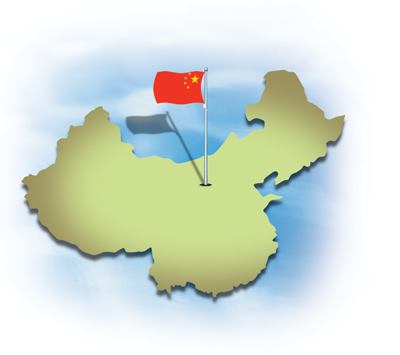For years, Rebekah Decker figured they were just spam.
The emails that regularly appeared in her in-box often featured Chinese characters, or were written in broken English, and didn’t carry much interest for Decker, the marketing manager at Spring Dance Hot Tubs in Jamison, Pa.
But these targeted communications from China-based manufacturers have been arriving with greater frequency of late, she said. And whereas in the past they only mentioned hot tubs or saunas, Decker recently spotted one offer for cover lifters, and another for spa accessories.
Asked whether she would ever add a Chinese manufacturer’s line of hot tubs, Decker, who carries Watkins products, paused a moment and then said, “It would have to be at a certain level of quality before we would even consider it. As far as the look, they’re still pretty simple. But they are doing a better job [now].”
The significant presence of pool and spa products in China is nothing new. But what’s raising eyebrows today is the extent to which China-based firms have made themselves at home on U.S. shores.
At last month’s International Pool | Spa | Patio Expo in Las Vegas, more than two-dozen Chinese manufacturing companies occupied booth space on the Mandalay Bay Convention Center’s show floor. Approximately half were new exhibitors.
“Every one of our members who walked the show was astonished,” said Greg Howard, CEO of Carecraft Inc., a buying group based in San Juan Capistrano, Calif. “This whole thing is gaining momentum, like a snowball traveling downhill.”
Howard estimated that 25- to 30 percent of chemicals, as well as pumps, filters and heaters, sold in the United States now are likely made in China.
The market for covers and vinyl liners, he said, is about 50 percent Chinese-manufactured, while pool games, toys and floats are closer to 70 percent. In addition, virtually all patio furniture currently is made in China.
But a number of long-standing factors still hinder broad acceptance of pool and spa equipment in the United States. The time and costs associated with delivery, particularly for replacement parts or components, can be prohibitive, critics said. And many Chinese manufacturers won’t ship small quantities.
“It’s not worth the hassle,” said Mike White, retail manager at Strong Spas in Northumberland, Pa.“It’s just known that China makes inferior products. The retailer deep down understands that when you get something from there, good luck.”
The ability to service Chinese brands is another concern, as is the difficulty of doing business with a company whose employees may not speak fluent English, or fully understand Western culture.
“There are hurdles — trust and confidence, quality, and a lack of communication,” said Joseph Gigl, vice president of U.S. operations for Bridging China International. “And some of these things make it difficult for a legitimate company to do business.
“But I do think the market penetration is going to get a lot deeper because the communication, processes and technology are getting better,” he added. “And I think that in order to be competitive in today’s business environment, you almost have to produce parts overseas.”
Established in 2005, Bridging China supplies its U.S. clientele — mostly distributors — with a full catalog of products, from heat pumps to maintenance kits to pool ladders. In addition to a one-year written warranty on nearly all items, the Shanghai-based firm carries full product liability insurance.
Indeed, though China traditionally has been known for poor quality, many manufacturing plants now are closer to those in the States in materials and practices, such as cutting down on regrind, according to Gigl.
In fact, many of the same Chinese facilities that produce pool and spa equipment for major U.S. manufacturers are simultaneously churning out similar, non-branded products.
“The Chinese are just learning how to use capitalism better,” said Manuela Rief, vice president of Poolvergnuegen in Santa Rosa, Calif. “In a free market, you can choose who your supplier is, and if you believe in that type of system, they have a right to be there.
“They may not be as good at marketing,” she added, “but for retailers, the pricing is so low that it’s worth the risk.”
At Sunplay Pools and Spas, owner John Olson was generally impressed with the level of Chinese craftsmanship on display at the Expo in Las Vegas. He now intends to pursue three or four companies that manufacture pumps, motors and filters.
“More and more, I don’t think people care about the brand, especially if they can save 40 percent or more,” said Olson, who is based in South Ogden, Utah. “What’s the difference when you’re talking about a company that warehouses it here, but it’s made in China?
“In my opinion, the customer would rather get a better price,” he added. “So, yes, I think we’ll see a lot more of it.”




